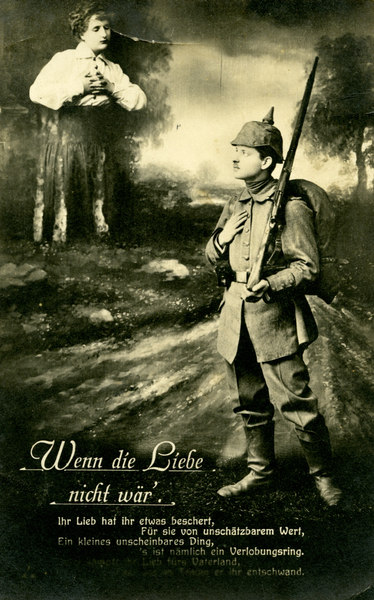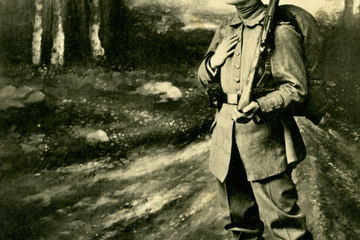
“If it wasn't for love…”, propaganda postcard
The soldier in the field is dreaming of his beloved. The postcard refers to the common concept of the female homeland and the male front.
Partner
Heeresgeschichtliches MuseumCopyright
Heeresgeschichtliches Museum, Wien

